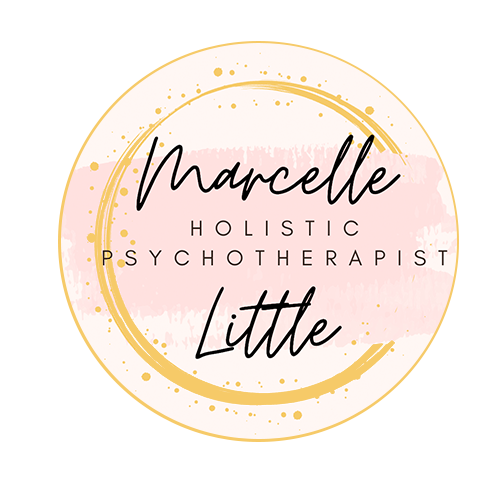Why Self-Esteem No Longer Dictates Mental Health and How Compassion Does
As a psychotherapist, I specialize in helping clients navigate anxiety and depression, relationship challenges, life transitions, codependency and people-pleasing, women’s issues, and trauma healing through somatic therapy, EMDR, and parts work. In my practice, I often see how many people are caught in cycles of self-criticism or feel defined by whether they “measure up.” Yet, research shows that cultivating self-compassion, rather than focusing solely on self-esteem, can create deeper resilience and long-lasting well.
The Shift in Understanding Mental Health
For decades, self-esteem was seen as the cornerstone of mental health. Feeling good about yourself was believed to be the key to happiness. However, as researchers like Kristin Neff and others have demonstrated, self-esteem is often fragile—fluctuating with external achievements, setbacks, or comparisons with others (Neff, 2003).
Self-compassion, on the other hand, offers a more stable foundation. Rather than tying our worth to success or external validation, it allows us to relate to ourselves with care and understanding, even in moments of struggle.
Understanding Self-Compassion
Kristin Neff, a pioneering researcher on self-compassion, describes it as being composed of three qualities:
Self-kindness vs. self-judgment
Common humanity vs. isolation
Mindfulness vs. overidentification
In her words, self-compassion is essentially “a quality of being caring and understanding of oneself versus allowing the judgmental critic to take over” (Neff, 2003). Neff’s work, grounded in both psychological science and Buddhist scholarship, highlights that self-compassion is not self-pity or indulgence—it’s an empowering stance that creates emotional balance and resilience.
Parts Work: Meeting the Inner Critic with Compassion
In my work with clients, I integrate parts work to explore the inner voices that show up in moments of anxiety, shame, or self-judgment. For example, the anxious part might believe it is protecting us from danger, while the critical part pushes us toward achievement to feel safe. By bringing compassion to these parts—rather than silencing or shaming them—we uncover their roots and create space for integration.
Juliane Shore, in her writing on mental health, describes well-being as a dance between integration and activation. To her, mental health is flexibility: the ability to shift between states with awareness, without getting stuck. She also defines boundaries not as rigid walls but as fluid markers of self-respect that allow us to stay connected to others without losing ourselves (Shore, 2021). This aligns beautifully with the self-compassion lens: when we approach our inner parts with care and boundaries, we create psychological flexibility and resilience.
The Pitfalls of Overemphasizing Self-Esteem
Self-esteem can motivate, but it often carries the pressure of maintaining a flawless self-image. When self-worth hinges on constant success, setbacks become crises. People may avoid risks, suppress feelings, or equate identity with performance. This rollercoaster of inflated highs and crushing lows contributes to anxiety, depression, and disconnection.
Research: Compassion vs. Self-Esteem
Studies consistently show that self-compassion leads to greater emotional balance than self-esteem. Neff’s research found that individuals practicing self-compassion reported less anxiety and depression, higher life satisfaction, and greater resilience (Neff, 2003; Neff & Germer, 2013). Unlike self-esteem, which is contingent on outcomes, self-compassion provides a stable sense of worth that isn’t dependent on external circumstances.
Practical Ways to Cultivate Self-Compassion
Mindfulness practices: Taking pauses to breathe and name emotions without judgment.
Compassionate journaling: Writing to yourself as you would to a friend.
Reframing self-talk: Shifting from “I failed” to “I am learning.”
Parts dialogue: Inviting critical or anxious parts into conversation and responding with kindness.
Each of these practices reinforces the inner flexibility described by Shore and allows us to embody Neff’s three qualities of compassion.
The Impact of Compassionate Communities
When families, workplaces, or schools emphasize compassion over performance, they foster resilience at both individual and collective levels. Communities that normalize imperfection and value care create trust, empathy, and connection—qualities that ripple outward into society.
Embracing Compassion for Lasting Well-Being
Ultimately, moving beyond the narrow lens of self-esteem into the spaciousness of self-compassion reshapes how we view ourselves and others. Compassion acknowledges imperfection while opening the door to integration, flexibility, and growth. By cultivating compassion within, we create a steady anchor—one that helps us navigate life’s inevitable challenges with strength and grace.
References
Neff, K. D. (2003). Self-compassion: An alternative conceptualization of a healthy attitude toward oneself. Self and Identity, 2(2), 85–101.
Neff, K. D., & Germer, C. K. (2013). A pilot study and randomized controlled trial of the mindful self‐compassion program. Journal of Clinical Psychology, 69(1), 28–44.
Shore, J. (2021). [Insert book title here]. [Publisher].
I’m Marcelle Little, a California and Florida-licensed psychotherapist (LMFT #129593, TPMF1241) and UK-registered practitioner offering online therapy for adults in California, Florida, and select European countries. My work integrates EMDR, somatic therapy, parts work, and depth psychology to help individuals heal trauma, anxiety, and intergenerational wounds.

